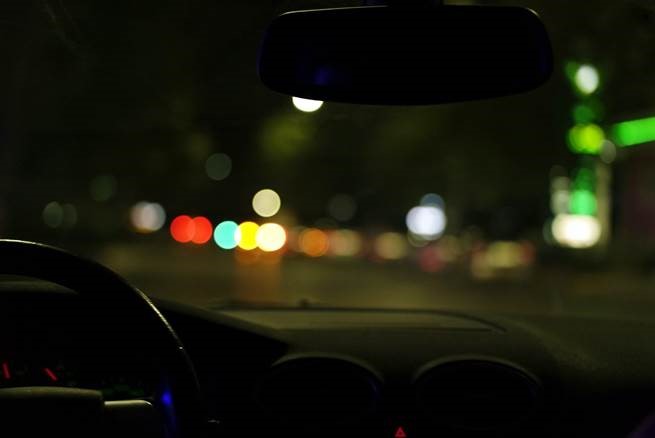As daylight saving time comes to an end and winter brings even fewer hours of daylight, drivers are going to spend more time in the dark. Even though the practice of “falling back” gives us all an extra hour of sleep on that one day, the extra rest can’t offset some of the dangers accompanying the end of daylight saving time. Both the beginning and end of daylight saving time are accompanied by a spike in crashes. As daylight saving time begins and people “spring forward,” they lose an hour of sleep and more fatal crashes are recorded. One study shows a 6 per cent increase in fatal accidents in the days following a time change.
In the fall, the time change means more time spent driving in lower light conditions, which is when the risk of crashes goes up. Drive Zimbabwe Roadside Assistance has found that traffic fatalities are three times higher after dark. Part of that danger can be attributed to the body’s natural response to darkness. We naturally want to wake up when it’s light and go to sleep when it’s dark. When it begins getting dark earlier, not only can it take us a few days to adjust to the time change, but our bodies are fighting the urge to relax and start winding down. Because of that, it’s not uncommon to start feeling drowsy behind the wheel.
Drivers At Greater Risk During Daylight Saving Time
Certain drivers are at greater risk for drowsy driving, and that risk also increases as time changes. Commercial drivers who operate vehicles, including buses, tow trucks, and those who drive at night daily, are more likely to drive drowsy; so are people who work night shifts or long hours. People who work more hours a week are at a 40 per cent greater risk of having a crash. Fleet drivers who don’t get enough sleep or who have been behind the wheel too long are also susceptible to feeling fatigued. Although we recommend that drivers should not be behind the wheel for more than 11 hours at a time, that amount of time is still enough to increase the risk if you’re already tired or not feeling well.
The Dangers of Driving Drowsy
Drowsy driving is more dangerous than many people realise. Drive Zimbabwe Roadside Assistance says that driving when you’re tired is as dangerous as drinking and driving. The effect of being awake for 18 hours straight has the same effect on your reflexes and responses as having a blood alcohol content level of 0.05. As the days get shorter and the darkness arrives earlier, drivers need to be proactive. Learning how to battle drowsiness and stay alert behind the wheel can be crucial in reaching your destination safely — and in keeping others on the road safe, too.
Plan for Safer Driving
Staying safe during daylight saving time could require adopting new driving habits, or it may be a matter of becoming more aware of the problem to make sure you’re avoiding practices that could add to your sleepiness. Here are a few ways to improve your safety during the drowsy, darker days ahead:
Avoid alcohol and medications that make you sleepy before driving. Either of these elements, when combined with driving in the dark, can have serious consequences. Mixing the two can prove lethal, as they compound your impairment. Because of that, never try out a new medicine for the first time when you’re required to be behind the wheel.
Know some of the warning signs and have a plan to fight them. Things like yawning, blinking excessively, missing an exit, or drifting into another lane all indicate that your fatigue may be catching up with you. If you start experiencing any of these effects, pull over and take a short nap or a brisk walk. Exercise is proven to help wake you up.
Be aware of dangers on the road around you. You’re not the only sleepyhead behind the wheel, so watch out for others who may be struggling to remain alert. Also, as the time changes and the sky gets darker earlier, there is a greater chance of animals being on the road. For example, animals are particularly active in winter, and car/animal collisions peak during this month, so be aware of that possibility as you drive through areas where wildlife might be present.
Make good sleeping habits part of your safety plan. Today we have plenty of distractions to keep us up at night, from smartphones to video games. Commit to safer driving by putting your devices away an hour or two before you go to bed, and make it a practice to get at least seven or eight hours of sleep. Sticking to a sleep schedule can help you feel more rested behind the wheel.
As the days get shorter and darker, knowing that you are prepared provides greater peace of mind. Consider investing in a roadside assistance plan that includes towing and recovery services. So much more than just Roadside Assistance…We are here for you! Our prompt and professional Roadside Assistance, Recovery and Towing services ensure quicker, quality assistance whenever needed. Let us be your reliable solution to getting back on the road smoothly. Experience our assurance of Reliable, Quality, and Cost-Effective Service… Always! Call or WhatsApp us at 0780 579 261/0718 084 297/ 0736 523 424 Office 0242 339718 Email: info@drivezim.co.zw. https://www.facebook.com/105600827733427.

